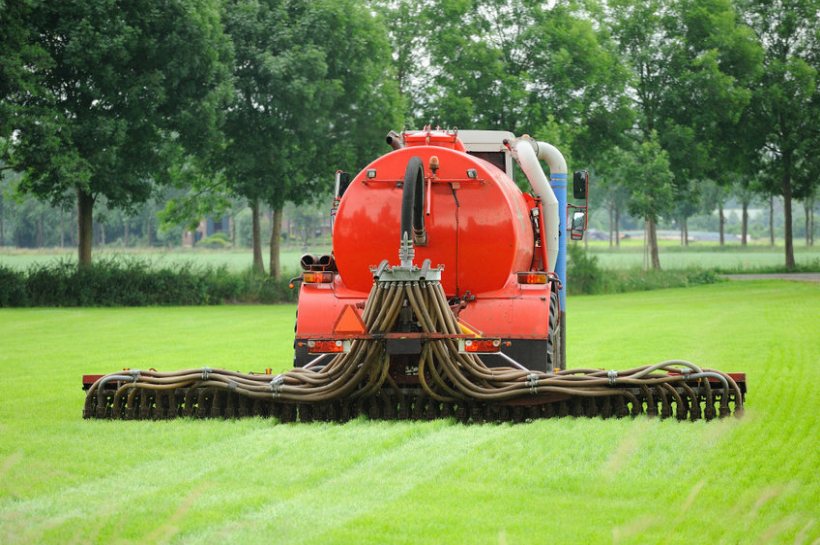
Farm leaders have welcomed new changes to the Welsh government's NVZ regulations, including a short extension of the implementation of the annual holding nitrogen limit.
A new written statement from the Minister for Rural Affairs Lesley Griffiths MS contains several amendments to the controversial rules.
Nitrate vulnerable zones (NVZs) are areas within Wales that contain surface water or groundwater susceptible to nitrate pollution from agricultural activities.
They are designed to improve water quality in rivers and lakes, but it means tougher restrictions on fertiliser and manure spreading.
Last year, the Welsh government introduced an all-Wales NVZ designation in a move that had angered farming groups.
But in a new statement, published on Wednesday evening (6 October), the government signalled a short extension of the implementation of the 170kg per hectare annual holding nitrogen limit.
This is accompanied by a consultation on a licensing scheme that would enable any farm to apply for a licence for a higher annual holding nitrogen limit of 250kg/ha subject to crop need and other legal considerations.
The consultation will consult on proposals for such a scheme to be operational until 2025.
In the statement, Ms Griffiths said there would also be a dedicated impact assessment on the economic and environmental impact of the 170kg/ha nitrogen limit, as well as committing to explore alternative technological solutions.
NFU Cymru said the changes were 'welcome' as they provided 'some additional breathing space' for Welsh producers.
The union, and other farming groups in the country, believe the regulations are unworkable and pose a threat to the viability of Welsh farming.
NFU Cymru has consistently opposed these regulations, including taking the matter to Judicial Review.
Responding to the statement, the union's president, Aled Jones said the Welsh government had listened to the 'very real concerns' of farmers.
"[It] has shown some recognition of the impacts that the regulations, in their original form, will have on Welsh farming’s viability and the knock-on impact on the supply chain.
"The licensing component now being consulted on by government gives all interested parties more time to find a fit for purpose, evidence-based solution that delivers the outcomes for water quality that we all wish to see, alongside a thriving Welsh agricultural sector."
Mr Jones said NFU Cymru commended the fact that an extra £20m of funding had been made available as part of the announcement.
He said: "It is crucial that this funding is used to support capital investment in infrastructure on farm, given that the government’s own impact assessment highlighted a £360m upfront cost to comply with these regulations."
Samuel Kurtz MS, Welsh Conservative Shadow Minister for Rural Affairs, said he was 'pleased' to see the rules were 'more proportionate'.
"We must treat this as a fresh opportunity to seek parity for Welsh farmers with our UK neighbours," Mr Kurtz added.
"The additional £20 million is welcome and will go some way to helping the industry meet the wider aspects of this regulation.”
